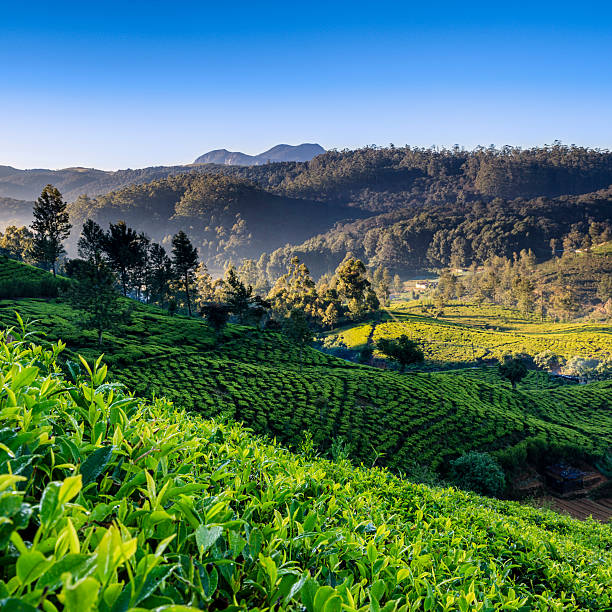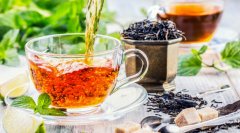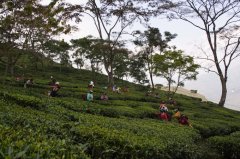Ceylon black tea bought back why is broken Ceylon black tea powder how long to soak without bitterness?
Ceylon is a rich black tea produced in Sri Lanka and known as Ceylon during British colonial rule. The characteristics of this tea are similar to other Indian black teas such as Assam and Nilgiri. It presents a bright red color and moderate astringency, and makes a brisk cup of tea with hints of citrus and spices. Ceylon is native to Sri Lanka, an island off the coast of India. Tea smuggled from China was first introduced into Sri Lanka during British rule in the 19th century. At that time, this area was called Ceylon, hence the name of the tea produced there. Although tea production in Sri Lanka began with only a few tea plantations, tea continued to enjoy popularity as an export commodity throughout the 19th century and beyond. Today, Sri Lanka is one of the largest tea producers in the world. In addition to Ceylon black tea, Sri Lanka also produces other specialty teas, including green tea and white tea. Ceylon caffeine content Ceylon caffeine content is very high, each cup of coffee caffeine content is about half of coffee. The caffeine content in tea is affected by several factors, including: Tea variety-although some tea trees originally introduced to Sri Lanka are tea tree varieties from China. Most Ceylon black tea today is made from Indian tea tree varieties. Assamica variety production. These teas tend to be slightly higher in caffeine than Chinese teas. Leaf Size-Our Ceylon is a high quality crushed leaf tea. Crushed leaf teas tend to be higher in caffeine than whole leaf teas because they are more concentrated. Water Temperature-As with other teas, we recommend brewing Ceylon tea in boiling water (about 212 degrees Celsius). The hotter the tea, the higher the caffeine content. Soaking time-We recommend soaking Ceylon for 2 - 4 minutes. The longer the tea is brewed, the more caffeine there is in it.

Ceylon tea, like other types of black tea, has many health benefits. Whether you want to boost your energy levels, improve digestion, or get more antioxidants from your diet, Ceylon is a good choice. Health benefits of black tea like Ceylon include: Improved digestion-feeling bloated or having digestive problems? A cup of Ceylon helps digestion and soothes stomach upset. Anti-inflammatory-Black tea contains theaflavins, a polyphenol that can help reduce inflammation and promote health. Increase energy-Ceylon's caffeine can increase energy and help you get through the day with energy. Ceylon is high in caffeine, with coffee containing about half as much caffeine per cup. Prevent colds and other diseases-Black tea contains catechins, which have been shown to help strengthen the immune system and prevent colds and other similar diseases. Reduce Stress-Feeling stressed? Black tea contains a unique ingredient called L-theanine, which can help reduce anxiety and promote calm and relaxation. The habit of preparing a good cup of tea can also help you relax when you feel anxious. Attention Enhancement-Caffeine and L-theanine in tea have been shown to help improve concentration and clarity of thought. Whether you are studying for exams or working, a cup of Ceylon coffee can help you improve your cognitive skills. High in antioxidants-Like other tea made from tea trees, Ceylon tea is rich in antioxidants that can help reduce free radicals in the body and prevent degenerative diseases. When preparing Ceylon, add one teaspoon of tea to every six ounces of water. We recommend using a teapot, brewer or tea strainer to prepare Ceylon. These brewing methods allow enough room for tea to expand during brewing, making the cup richer and more delicious. Heat the water to a boil, then add the leaves and cook for 2 to 4 minutes. Ceylon can be drunk alone, fresh and refreshing, or with milk and sweeteners. Like other strong black teas, Ceylon is an excellent base for making lattes and milk teas.
Important Notice :
前街咖啡 FrontStreet Coffee has moved to new addredd:
FrontStreet Coffee Address: 315,Donghua East Road,GuangZhou
Tel:020 38364473
- Prev

General situation of Variety Information of Assam Black Tea brewing guidelines and efficacy of Assam Black Tea
About Assam Black Tea Assam is a nutritious black tea grown in Assam, India. This kind of tea is usually one of the main ingredients of popular mixed breakfasts, such as English breakfast and Irish breakfast. Although Assam can be drunk alone because it is a bold, astringent cup, it is strong enough.
- Next

Darjeeling black tea taste difference between spring picking tea and summer picking tea how to drink spring picking and summer picking Darjeeling black tea
The name of Darjeeling Tea for Darjeeling comes from the Himalayan region of India, where the plant is grown. Unlike its eastern neighbour Assam, Darjeeling has a smaller area, higher elevations and lower temperatures, so the tea is lighter and more nutty. Because of its exquisite taste and superiority
Related
- What is the difference between Indonesian Sumatra Mantinin coffee and gold Mantinin? How to distinguish between real and fake golden Mantelin coffee?
- What does bypass mean in coffee? Why can hand-brewed coffee and water make it better?
- Unexpected! Ruixing Telunsu lattes use a smoothie machine to foam milk?!
- % Arabia's first store in Henan opens into the village?! Netizen: Thought it was P's
- Does an authentic standard mocha coffee recipe use chocolate sauce or powder? Mocha Latte/Dirty Coffee/Salty Mocha Coffee Recipe Share!
- What is the difference between Vietnam egg coffee and Norway egg coffee? Hand-brewed single product coffee filter paper filter cloth filter flat solution!
- What is the difference between sun-cured and honey-treated coffee? What are the differences in the flavor characteristics of sun-honey coffee?
- How to make Italian latte! How much milk does a standard latte use/what should the ratio of coffee to milk be?
- How to make butter American/butter latte/butter Dirty coffee? Is hand-brewed coffee good with butter?
- Is Dirty the cold version of Australian White? What is the difference between dirty coffee/decent coffee and Australian white espresso?

